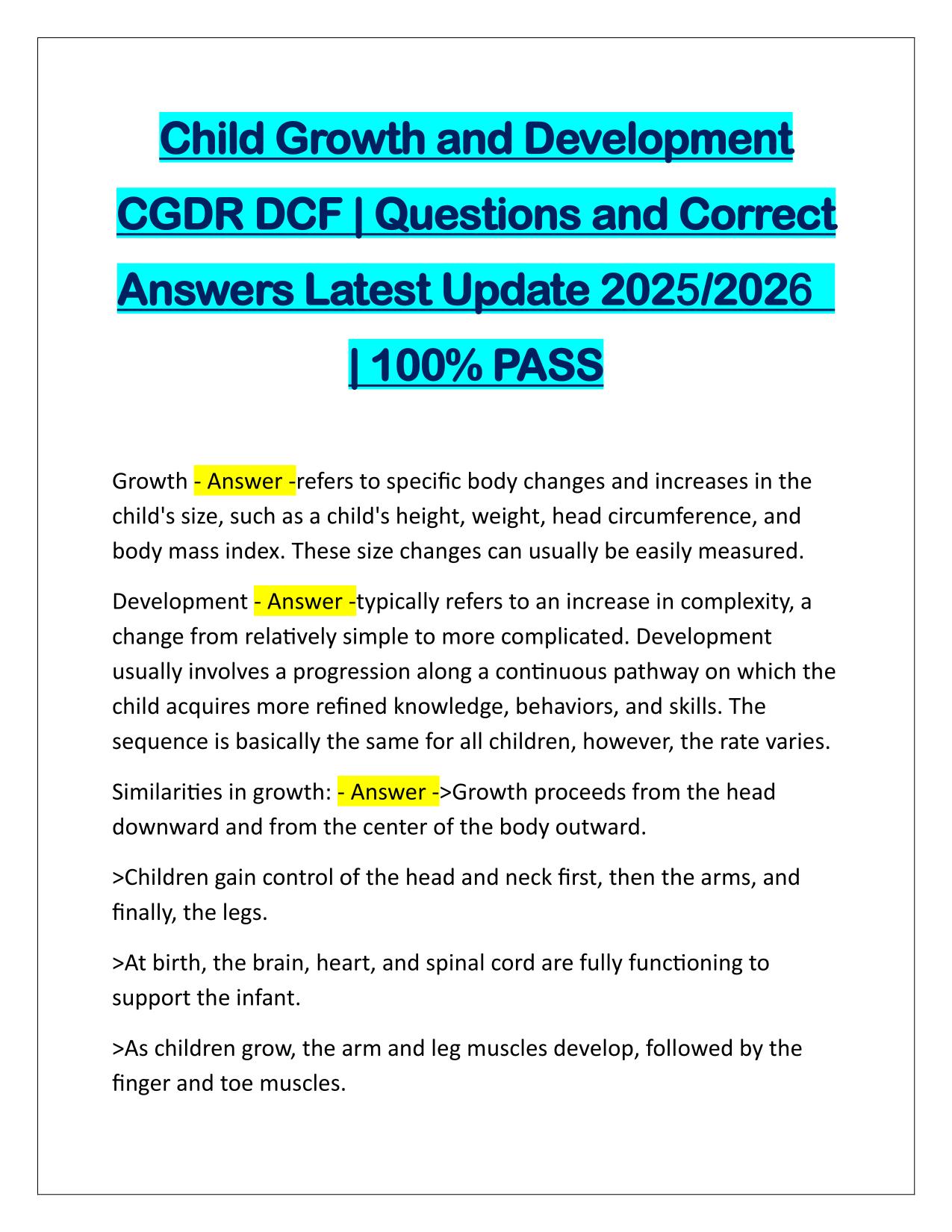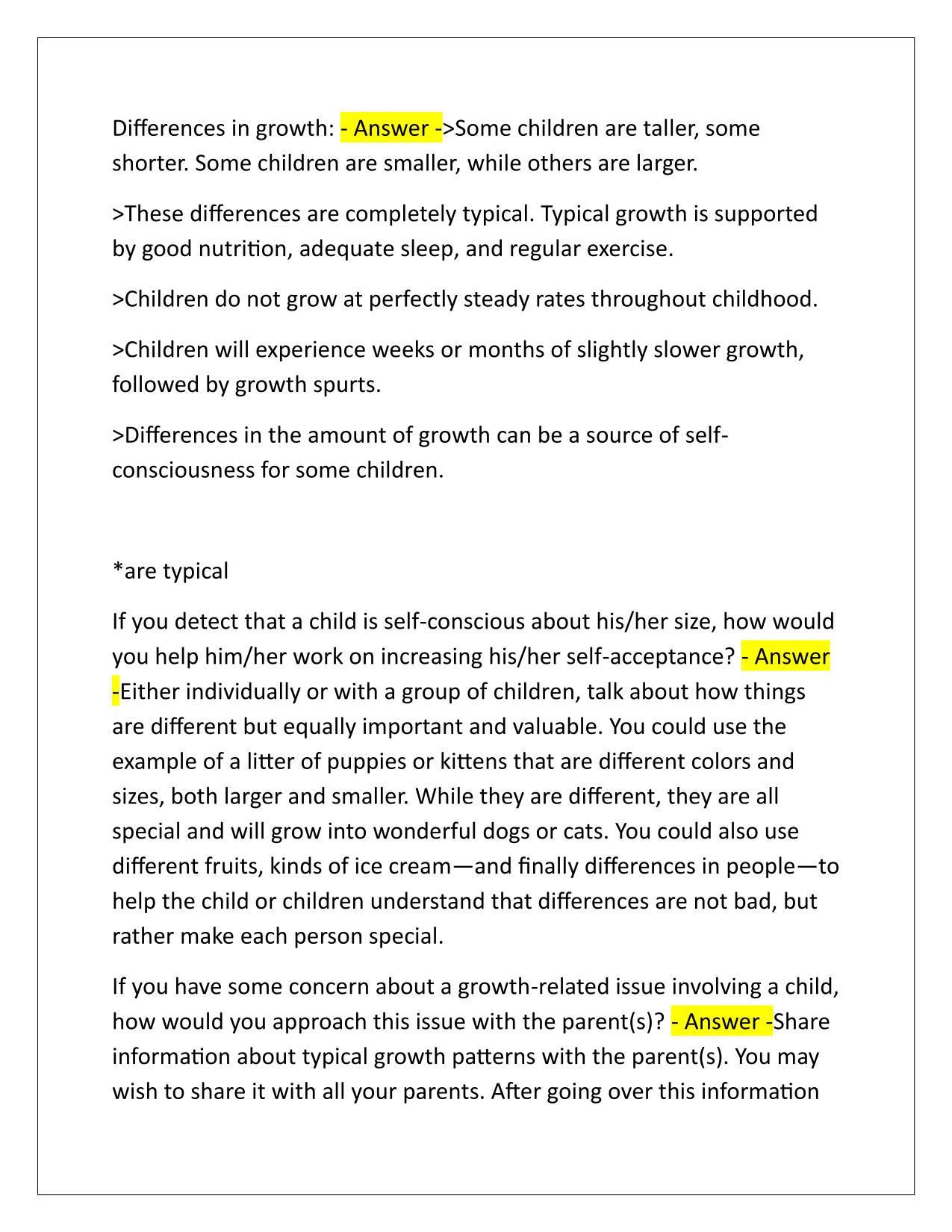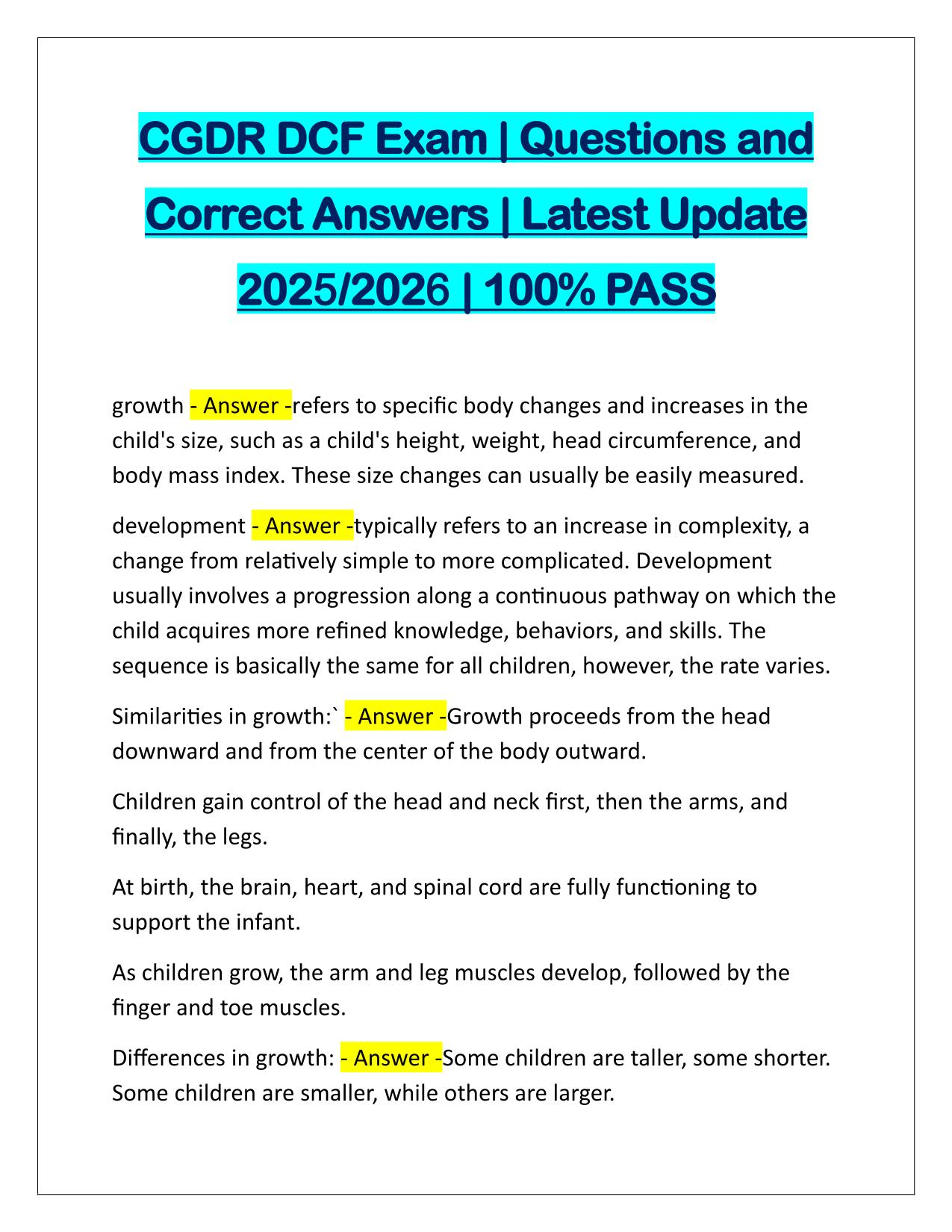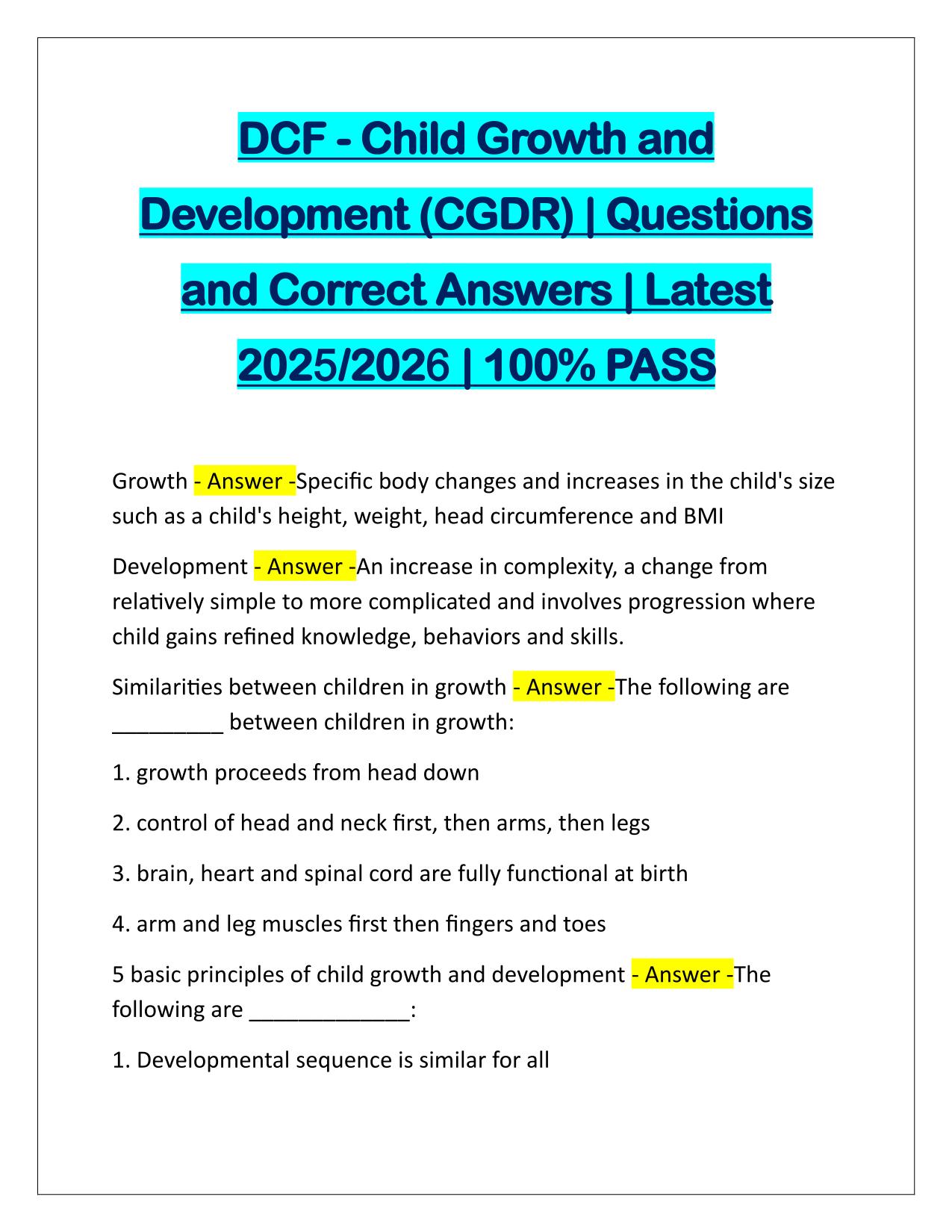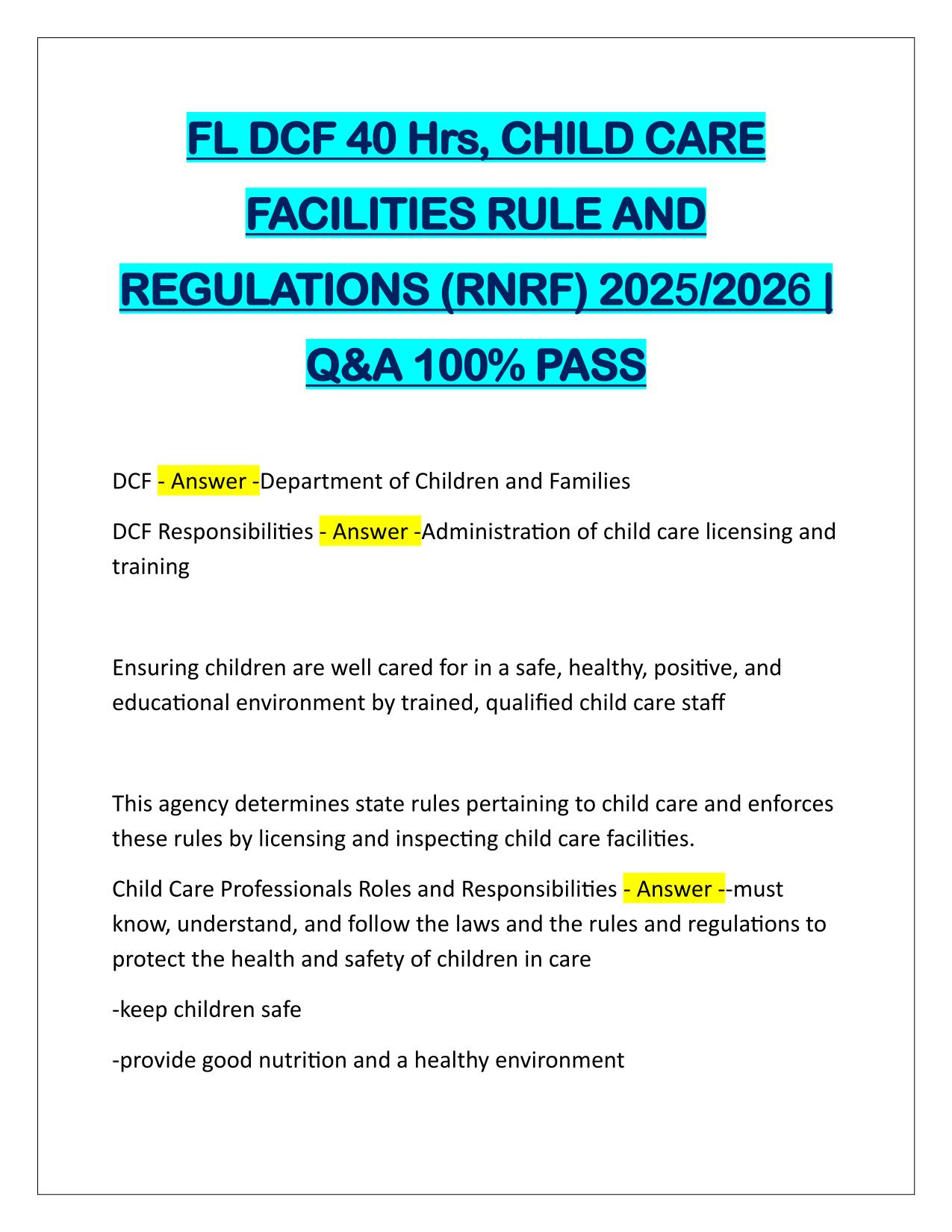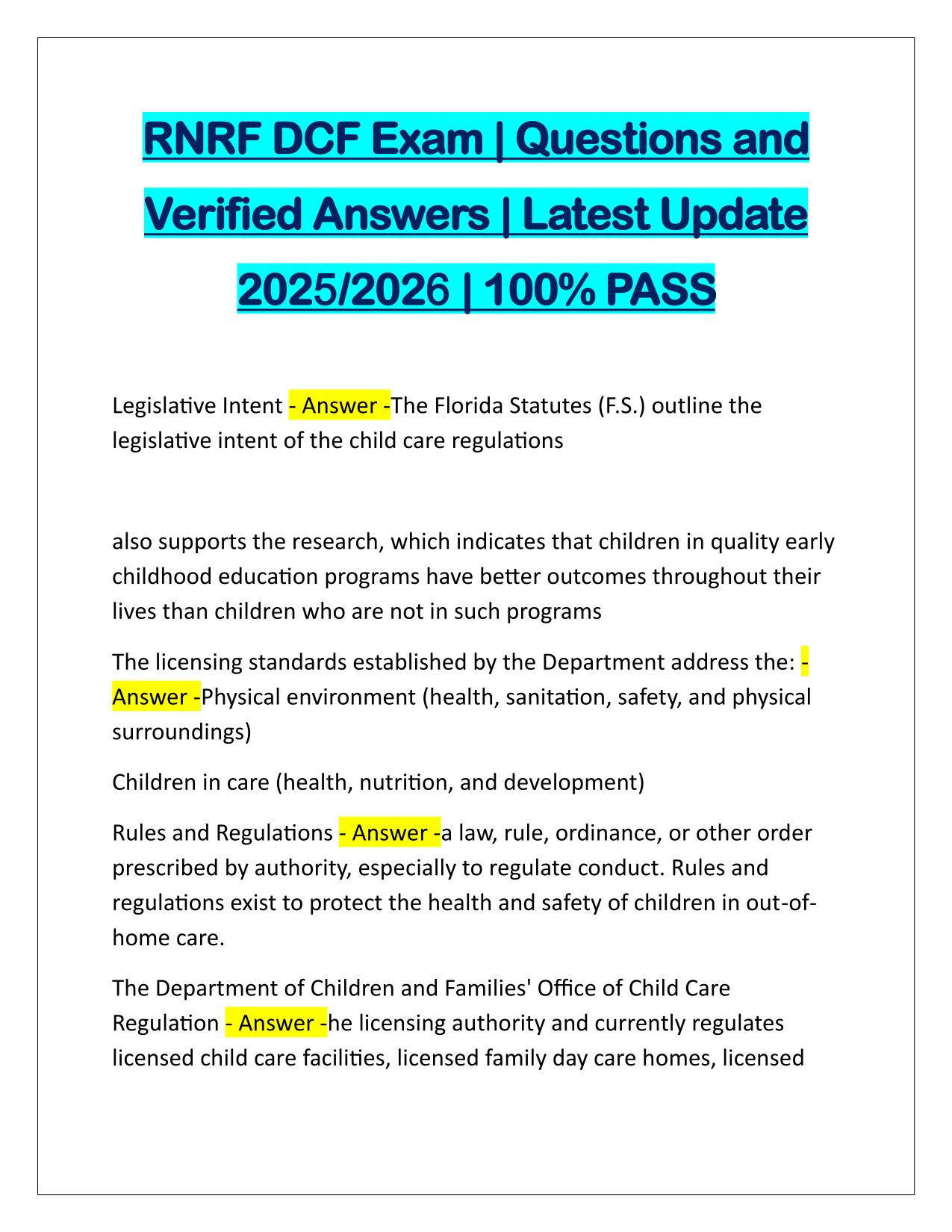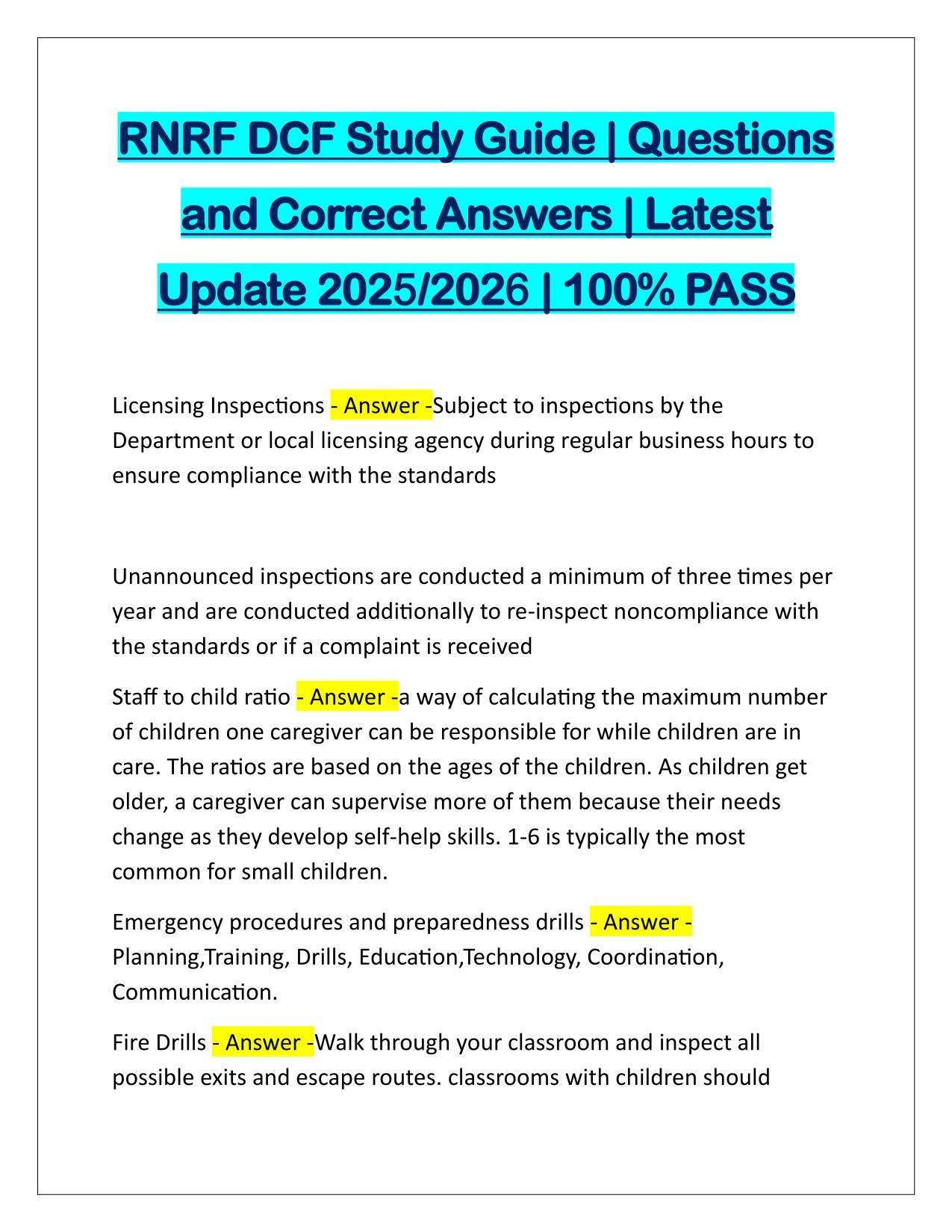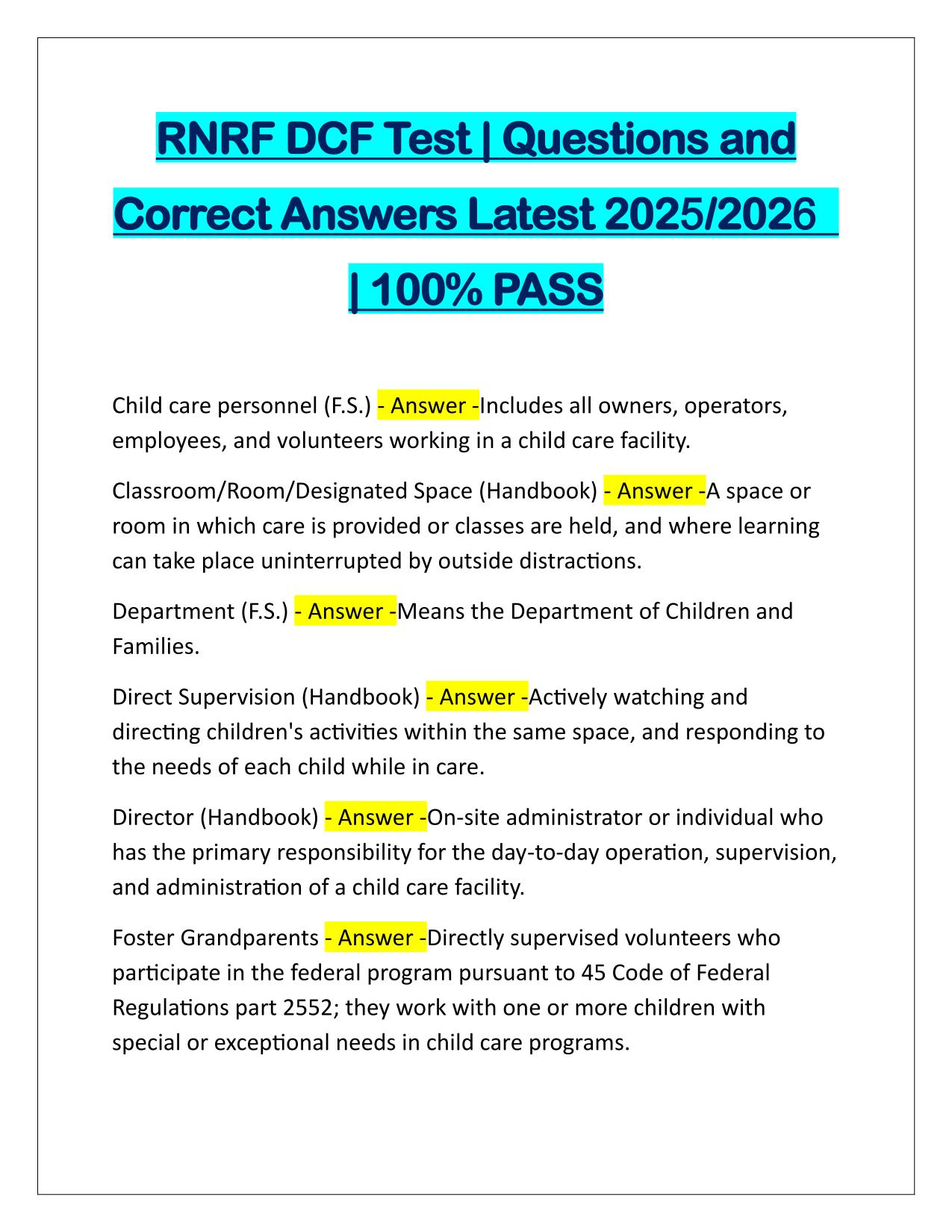Child Growth and Development CGDR DCF Correctly Answered
Course:
RNRF DCF
Institution:
RNRF DCF
Child Growth and Development CGDR DCF Correctly Answered
After purchase, you get:
✅ Instant PDF Download
✅ Verified answer explanations
✅ Refund if not Satisfied
✅ Prepared for 2025/2026 test cycle
Document Information
| Uploaded on: | May 21, 2025 |
| Last updated: | July 18, 2025 |
| Number of pages: | 21 |
| Written in: | 2025/2026 |
| Type: | Exam (elaborations) |
| Contains: | Questions & Answers |
| Tags: | Child Growth and Development CGDR DCF Correctly Answered |
Seller Information

AdelineJean
User Reviews (0)
Exam (Elaborations)
$9.00
Bundle Deal! Get all 7 docs for just $14.99
Add to Cart
100% satisfaction guarantee
Refund Upon dissatisfaction
Immediately available after purchase
Available in Both online and PDF
$9.00
| 0 sold
Discover More resources
Available in a Bundle
Content Preview
Child Growth and Development CGDR DCF | Questions and Correct Answers Latest Update 2025/2026 | 100% PASS Growth - Answer -refers to specific body changes and increases in the child's size, such as a child's height, weight, head circumference, and body mass index. These size changes can usually be easily measured. Development - Answer -typically refers to an increase in complexity, a change from relatively simple to more complicated. Development usually involves a progression along a continuous pathway on which the child acquires more refined knowledge, behaviors, and skills. The sequence is basically the same for all children, however, the rate varies. Similarities in growth: - Answer ->Growth proceeds from the head downward and from the center of the body outward. >Children gain control of the head and neck first, then the arms, and finally, the legs. >At birth, the brain, heart, and spinal cord are fully functioning to support the infant. >As children grow, the arm and leg muscles develop, followed by the finger and toe muscles.
